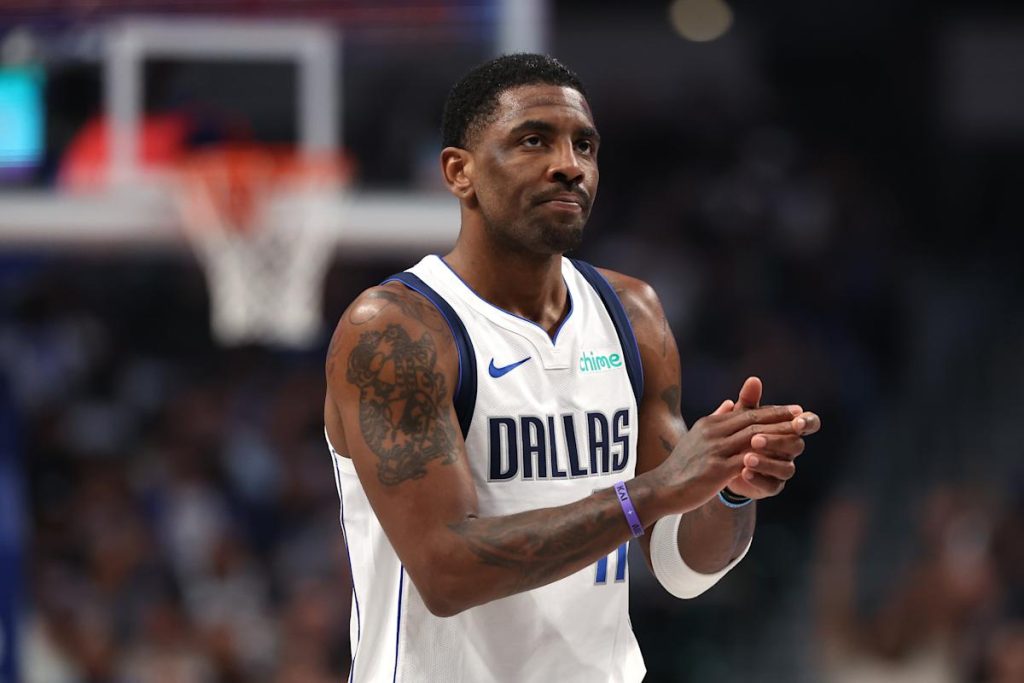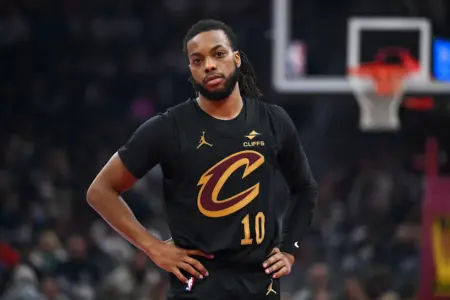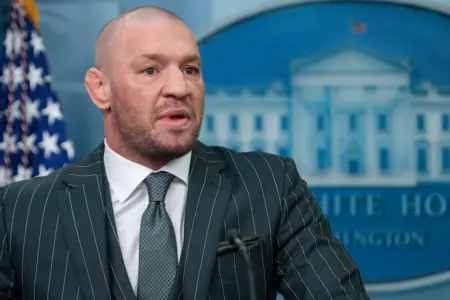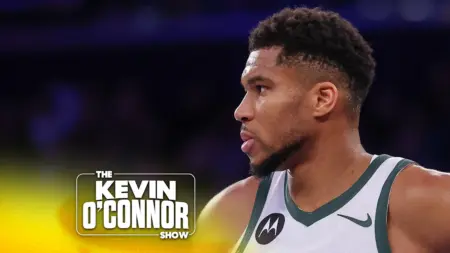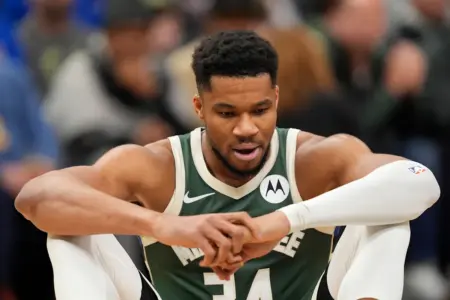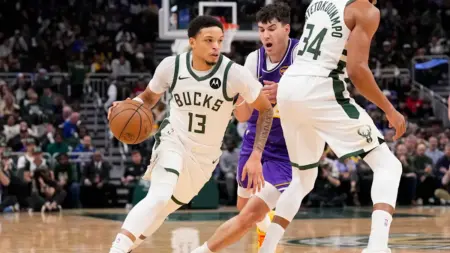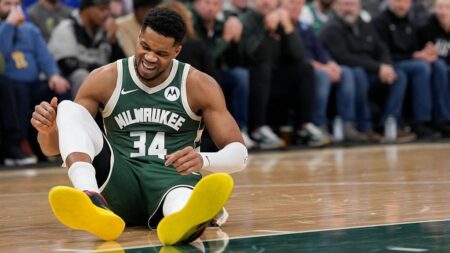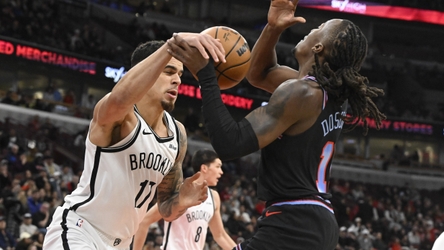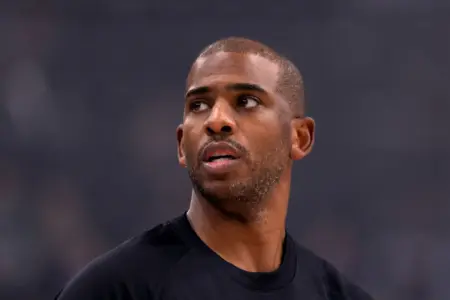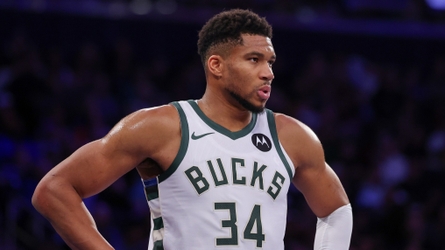The Shock of Kyrie Irving’s ACL Injury
The announcement of Kyrie Irving’s ACL injury sent ripples through the NBA, adding another layer of scrutiny to the Dallas Mavericks’ recent decision to trade Luka Dončić. Many have framed this as some form of cosmic retribution, suggesting that Irving’s injury is a tool to make General Manager Nico Harrison appear incompetent for trading Dončić. However, such a perspective does a disservice to Irving, who has long advocated for his humanity and complexity as a person and an athlete. When Irving took that fateful step down the court during Monday night’s game against the Sacramento Kings, it looked serious and only grew more concerning upon replay. Despite the severity, Irving still managed to take his free throws before being helped to the locker room by another injured teammate, Anthony Davis. This sequence of events, with both Davis and Irving being sidelined shortly after joining the Mavericks, has only fueled the narrative that Harrison’s moves are somehow cursed.
Irving’s Resilience and Skill
To call Irving’s injury and Davis’s misfortune anything other than bad luck seems overly harsh. Davis had his healthiest season as a professional last year, having missed only five games before the trade and was on track to play over 70 games this season. Irving, too, had been shouldering a heavier load since the Dončić trade, but his minutes had already been increasing due to Dončić’s inactivity after his Christmas Day injury. Prior to the trade, Irving was averaging 37.5 minutes per game from December 27 to January 31. Irving’s talent is undeniable; he is one of the most entertaining players in the league, combining creativity with efficiency. Only Amir Coffey of the Clippers and Sam Hauser of Boston have a similar shooting profile (40% from 3, 50% from 2, and 90% from the free-throw line), but neither matches Irving’s volume or impact. Irving’s return to the All-Star stage this season, even as an injury replacement, underscores his resurgence and the high regard in which he is held.
From Brooklyn to Dallas: Irving’s Journey
Irving’s journey to Dallas is a tale of redemption. His time in Brooklyn was marred by controversies, including his stance on the COVID-19 vaccine, which led to his being sidelined for much of the 2021-2022 season. He also faced criticism for sharing a link to an antisemitic film, a move that upset many and led to a public apology. The trio of Irving, Kevin Durant, and James Harden, once seen as a promising super team, failed to live up to expectations, and Irving was often blamed for the dysfunction. However, his move to Dallas, where he reunited with his former teammate and friend Luka Dončić, provided a fresh start. Under the guidance of Nico Harrison, who had previously shown faith in Irving by rescuing him from Brooklyn, Irving found stability and a renewed focus on basketball. His leadership and maturity were evident as the Mavericks made their playoff run, and he proved to be a calming influence on a team that lacked postseason experience.
The Promise and Peril of the Luka Trade
The Mavericks’ playoff success last year was a testament to Irving’s leadership, not just Dončić’s star power. While Dončić was the undisputed leader, Irving was a crucial factor in the team’s success. Even during the Finals, where Boston’s long and rangy defenders limited his effectiveness, Irving did not break or melt down. Instead, he demonstrated resilience and a mental toughness that had been overshadowed by his off-court issues. Harrison’s decision to trade Dončić, in part, was influenced by Irving’s strong performance and the potential he saw in pairing him with Anthony Davis and other additions like Dereck Lively II and Daniel Gafford. The idea was to build a formidable team around Irving’s offensive creativity and Davis’s defensive versatility. The combination was intriguing and could have been a compelling strategy for the present and future. However, Irving’s injury has now thrown a significant wrench in those plans.
Irving’s Character and Impact
Irving’s injury is a harsh blow, especially given the three-year window the Mavericks had planned around him and Davis. Irving will be 33 in less than three weeks, and his return to the NBA floor could be delayed until he is nearly 34, or even longer, depending on his recovery. The impact of this injury is not just felt on the court but also off it. Irving’s 33rd birthday is a reminder of his place in the league as one of the older guards who have significantly influenced the game, alongside Stephen Curry and Damian Lillard. Irving’s legacy includes one of the most significant shots in NBA history—the clinching 3-pointer in Game 7 of the 2016 NBA Finals. Beyond his skill, Irving’s ability to straddle the line between being a franchise leader and an empathetic former teammate to Dončić shows his depth and character. Dončić’s supportive Instagram post before Irving’s injury diagnosis was a touching moment that underscores the mutual respect between the two players.
Looking Forward and the Human Element
The focus of the NBA and its fans will inevitably shift to Harrison’s decision-making and the aftermath of the Luka Dončić trade. However, it’s crucial to remember the immediate and profound impact this injury has on Kyrie Irving. At 33, Irving is at a pivotal point in his career, and a significant injury like an ACL tear can have long-lasting effects. The loss of his presence will be deeply felt by the Mavericks, but more importantly, it is a personal setback for Irving. His journey from being a malcontent in Brooklyn to a respected leader in Dallas is a testament to his ability to grow and adapt. Irving’s teammates and the basketball community at large will miss his creativity, shot-making, and calming influence. As the Mavericks face an uncertain future, the human element of Irving’s injury should not be overlooked. It is a poignant reminder that even the most talented athletes are vulnerable to the unpredictable nature of the game.

